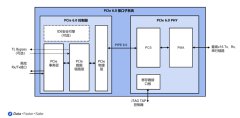KPMG calls for board rooms to embrace a ‘pragmatic cyber culture’
NEW YORK--(BUSINESS WIRE)--Organizations across the world have made strides in remote working and collaboration during the COVID-19 pandemic, but the proliferation of digitization is creating significant new cyber threats that require radical cultural change at boardroom level.
A new report from KPMG ‘From enforcer to influencer: Shaping tomorrow’s security team’ is calling on business leaders to ensure cyber security specialists are part of the C-suite decision making process, with digitization at the heart of their future growth strategies.
The report offers seven key recommendations to IT leaders and Chief Information Security Officers (CISOs):
1. Act like you belong in the C-suite
CISOs must speak the language of the C-suite, building consensus, demonstrating pragmatism and navigating politics, to help leaders understand the cyber implications of their strategic choices. CISOs are also becoming public figures, serving as the face of the firm to help build trust and confidence.
2. Broaden horizons
CISOs’ responsibilities are broadening to include safeguarding data, dealing with disruptive events to maintain operational resilience, managing third parties, handling regulatory compliance, and helping to counter cyber enabled financial crime. This demands they forge strong working relationships with other business leaders including the Chief Risk Officer (CRO), the Chief Data Officer (CDO) and, of course, the Chief Information Officer (CIO).
3. Weave cyber security into the organizational DNA
Today’s CISOs should be sophisticated communicators, working with other business leaders to embed cyber security into the DNA of the organization. This involves integrating security into governance and management processes, education and awareness, plus establishing the right mix of corporate and personal incentives to do the right thing.
4. Shape the future cyber security workforce
CISOs will have to acquire capabilities from outside the organization, build new partnerships and look for unconventional and diverse talent. In future, we may even see the cyber function becoming far smaller, taking on a strategic and governance role, with cyber security being truly embedded into the business.
5. Embrace automation as the rising star
Automation can reduce the manual workload and ease skills shortages, bringing in greater efficiency and helping meet growing compliance requirements in a consistent and repeatable way. It can also help embed security and improve the user experience, as well as reduce the time to respond to a major cyber incident.
6. Brace for further disruption
We are heading towards a hyperconnected world in which the IoT and 5G networking will massively increase efficiency and enable radically different business models. But this also opens up organizations to new attack surfaces and raises privacy concerns — demanding a shift to new, data-centric security models such as zero trust.
7. Strengthen the cyber security ecosystem
Organizations are now part of a complex ecosystem of suppliers and partners, tied together through shared data and shared services. Conventional contracts and liability models seem ill-suited to the rapidly evolving supply chain threat, calling for a new partnership approach that brings security to all parties and individuals.
The actions were developed following extensive dialogue with senior cyber security leaders across the world, which identified universal opportunities and challenges facing the IT and digital functions within leading companies.
At the heart of KPMG’s recommendations is a recognition at C-suite level that digital security experts should be key players in the overall decision making processes, guiding the future direction of the business, developing robust digital infrastructure, embracing innovation and helping to identify potentially critical threats ahead.
Fred Rica, Principal, Cyber Services, KPMG in the US, said:
“Organizations have made incredible strides in remote working and collaboration for employees, as well as improving digital customer experience. But this has also reminded us that physical perimeters no longer exist. With increasing reliance on third parties, and the proliferation of Internet of Things (IoT) and other devices, cyber security now involves complex ecosystems with a dramatically increased threat potential.
“In a marketplace where speed to market is essential, cyber security teams are now responsible for building trust and resilience, by forging a pragmatic security culture and helping embed secure by design thinking into every aspect of digital infrastructure and data. To do this, they must see themselves as enablers and facilitators, helping others deliver services and brands that deserve cyber trust amongst customers, employees and society at large.”
The full report can be read at: https://home.kpmg/xx/en/home/insights/2021/07/cyber-trust-securing-the-future.html







